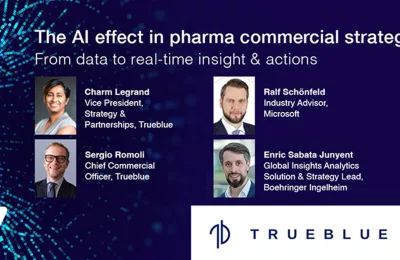Now add ChatGPT. Recommended doses? To taste.
Ethics, Artificial Intelligence and ChatGPT in Pharma & Life Sciences markets: where do we stand?
Artificial Intelligence (AI) has revolutionized many industries, including Pharma & Life Science. Thanks to its data processing capabilities and intuitive abilities, AI offers unprecedented opportunities for research, drug discovery, personalized patient care, and much more. One of the most advanced AI tools is ChatGPT, a language model that can interact with users through a conversational interface and natural language processing, providing relevant and informed responses.
Okay, this is the part we all know by now. But let's take a step forward and look beyond the hype cloud that has been created on this topic. We can add that, without a dedicated and structured training model, Artificial Intelligence may not perform well. Or that, at the core of all Machine Learning models lies what is commonly referred to as a Data Set: the collection of internal but unstructured data within the company that needs to be processed before being fed into the artificial intelligence algorithm. But let's move on.
AI and ChatGPT for the Pharma & Life Science sectors: obstacles and expectations to consider
AI and ChatGPT offer several advantages in Pharma and Life Science industries. Firstly, they enable faster development times and cost reduction in scientific research, consequently aiding in the discovery of new drugs. Additionally, AI can analyze large amounts of data from clinical studies, scientific publications, and databases, helping identify new connections between different sources and uncover information that may go unnoticed by the human eye. On the other hand, ChatGPT can provide a more interactive support to researchers, answering their questions and suggesting possible solutions and responses based on the intersection of a wide range of information.
In this second part, though entirely true, the information is mostly well-known and shared among industry experts. The data, including that from Trueblue itself, shows that projects related to AI and ChatGPT are becoming increasingly widespread. There is a growing willingness in the markets we address to experiment, proving a potential "test & learn" in terms of adopting a new work model and, first and foremost, Change Management. It highlights the capability of structured, regulated, and inherently rigid companies to push the accelerator and flip the paradigm of processes, functions, organization, and research & development, while embracing the famous risk of change.
In case of doubt, we suggest delving deeper by investing approximately 8 minutes in our survey dedicated to the adoption of AI & ChatGPT. Surprise us!
Ethical challenges in the use of AI and ChatGPT
Despite the benefits, the use of AI and ChatGPT in the Pharma and Life Science industries also raises important ethical questions. Firstly, AI has the potential to replace human healthcare professionals in certain tasks, raising concerns about patient safety and the quality of care. Additionally, AI requires the use of sensitive patient data to function properly, raising issues related to privacy and data protection. It is crucial to ensure that data is collected and used in compliance with regulations and the informed consent of patients. Furthermore, AI could perpetuate and widen inequalities in the healthcare industries if access to technologies and personalized treatments is limited to those who are more privileged both geographically, socially, and economically.
Here, we begin to delve into a less superficial area than those widely explored so far. The most interesting part, in my opinion, is the risk of widening inequalities. Let's be clear, even in this case, the issue is known to many, but with attentive eyes, a much broader potential problem can be identified. This holds true even for those seeking a resolution to the problem.
The risk of widening inequalities in Healthcare, Pharma, and Life Science industries is definitely a topic too significant to be ignored, and the risk of non-compliance with regulations cannot be "solely" guaranteed by the ethics of AI.
Justifying the use of AI by simply hiding behind the concept of ethical usage is not only reductionist but also dangerous.
“Ethics” derives from the Greek term (ἦθος) which original meaning is "the place to live", can be understood in various ways. It can signify "beginning," "appearance," "disposition," and from there, "character" or "temperament." The term "ethikos" (ἠθικός) also comes from the same Greek root, which means "theory of living," giving rise to the modern term "ethics."
'Popular ethos', in its Hegelian and modern sense, refers to the set of values and norms, behavioral codes that, when internalized by individuals for the purpose of social integration, constitute and determine the disposition, character, and cultural temperament of a given population.
The Hegelian and modern sense of ethics may indeed seem distant from the contemporary one. Unfortunately, today’s ethics, as understood in this perspective, get lost in the complexities of a social system strained by technological acceleration, both positively and negatively.
Therefore, the only way to mitigate risks is through legal norms. These norms should be guided by procedures, written and clear, not multiple interpretations when it comes to protecting the inalienable rights of human beings, such as health.
Let's move on…Ethical principles for a responsible use of AI and ChatGPT
We have attempted to ask ChatGPT itself what ethical principles should concern the responsible use of AI. The answer can be summarized in these three points:
- Transparency and accountability: AI and ChatGPT developers need to be transparent about both the methods used and the source of data. They must be accountable for any errors or biases in the algorithm and ensure ongoing human supervision to avoid unintended consequences;
- Privacy and data protection: Patient data must be treated with utmost respect for privacy and security. Developers must adhere to privacy laws and implement appropriate security measures to prevent data breaches and misuse;
- Fairness and accessibility: AI and ChatGPT should be accessible to everyone, regardless of their economic or social context. Developers should work to reduce the digital divide and ensure that everyone has equal opportunities to benefit from innovative technologies in Pharma and Life Science industries.
In conclusion
The use of artificial intelligence and ChatGPT in Pharma and Life Science industries offers extraordinary opportunities for all the reasons listed in the previous paragraphs. However, it is essential to address the ethical issues that arise from this powerful technology. By adopting principles of transparency, accountability, privacy, data protection, fairness, and accessibility, we can ensure an ethical and responsible use of AI and ChatGPT, contributing to the improvement of everyone’s health and well-being.
This is what we would call a tendency to protect oneself from risk. Even in this case, ChatGPT has been almost impeccable.
The reason we chose to approach the topic in this way is related to recent news, namely the approval of the AI Act by the European Parliament on June 14th.
What is it about?
It is a legislative document that is expected to come into effect no earlier than a year (some sources even say not before 2026). Therefore, it is preceded by the work being done by the European Commission on the AI Pact, a voluntary agreement on AI regulation that precedes the implementation of the European AI Act. This agreement involves some of the major Big Tech and European and non-European companies, aiming for shared responsibility in favor of the safe and sustainable development of Artificial Intelligence. (source)
Why is it so complex to talk about AI regulation?
The answer to this question, although seemingly simple, is far from trivial. It is, in fact, the first time that a regulatory body chooses to adopt measures of this kind to safeguard risks such as privacy, transparency, and yes, even social inequalities.
The complexity of dealing with this matter arises precisely from the intrinsic characteristics of the subject in question: uniqueness (a technology with which our world must contend), power (the potential is indeed very high), and versatility (the possible applications simultaneously touch various sectors, which may differ from each other).
All these risks and considerations are not always straightforward nor objective. If left unregulated, they could clash with the inherent need for progress and technological advancement that we have in the field of AI and beyond.
"Learning and innovation go hand in hand. The arrogance of success is to think that what you did yesterday will be sufficient for tomorrow."
William Pollard



